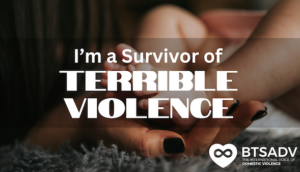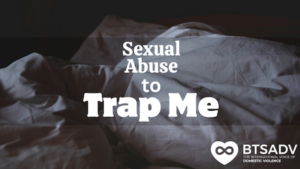Stalking is one of those subjects that is commonly misunderstood, difficult to identify, and more prevalent and serious than most people know. According to The National Institute of Justice:
“stalking is a course of conduct directed at a specific person that involves repeated (two or more occasions) visual or physical proximity, nonconsensual communication, or verbal, written, or implied threats or a combination thereof that would cause a reasonable person fear.”
Stalkers often spy on their victims, show up unexpectedly, send gifts, emails, and other unwanted communication. However, with the advancement of technology, stalking has evolved and now includes digital abuse. Computers, cell phones, social media, and accessible and affordable spying devices have increased the ability for others to track a victim’s conversations, computer use, access personal information, and know their location at all times through the help of GPS.
Below are five common myths about stalking, that everyone should know.
#1 Only celebrities experience stalking
When celebrities are stalked, it becomes news, but what is not portrayed in the media is that 5.2 million women and 1.4 million men will be stalked each year, most of which are not famous celebrities.
#2 In the Netflix series You the stalker simply appears to be protective and his actions seem romantic. It isn’t stalking if the person does it out of love.
You is a controversial series, that shows the inner thoughts of a stalker, while also showing the way he interacts with his environment and the victim. The show has a large following of fans, divided in how they view Joe’s actions. Many view the attractive actor as protective, loyal, and deeply in love with his victim, Beck. However, when you take away his good looks, and the fact that he appears normal to the outside world, his internal dialogue shows he is anything but romantic. Stalking is never okay, it is manipulative, controlling, obsessive, and ultimately deadly, as shown in Joe’s every thought.
#3 Stalking is annoying and creepy, but it isn’t dangerous.
According to the Office for Protection of Domestic Violence, stalking is often seen as a terrorizing crime that has no end. It causes tremendous fear, often without any physical contact. Stalking is ultimately a way to control the victim and often becomes lethal, making it far more than annoying and creepy.
#4 If it isn’t malicious or physically threatening, it isn’t stalking or against the law.
Not all stalkers threaten and physically hurt their victims. According to One Love, the signs of stalking can often be overlooked when they are not openly malicious. However, any sign of stalking should not be ignored; it is against the law and should be reported. Some stalkers will call their victim and hang up, drive by their house, use gifts to make up for their obsessive behavior, and seem to know where they are and who they are with at all times. Not all behavior that is considered threatening is physical. Stalkers will often blackmail their victims with personal pictures or information and keep tabs on them over social media or trackers.
#5 You can’t be stalked by someone you are married to or have a relationship with.
This is the most misunderstood characteristic of stalking. According to the NCADV, three out of four victims personally know their stalkers, with the most common connection being current or former intimate partners. In fact when a current or former partner is involved in stalking, the lethality risk increases. Seventy-six percent of victims who were murdered by their intimate partner were stalked first. When there is a current or former relationship, the risk of fatality greatly increases due to the detailed information that the stalker knows about the victim. A partner already has knowledge of the victim’s schedules, personal information, fears, weaknesses, friends and family contacts. If there are children involved, they are able to legitimize interaction with the victim, and have an excuse to come in contact with them at school events, court, or child exchanges.
Stalking is serious, dangerous, and often lethal. Stalking is often confused with intense love and protectiveness. However, in reality, stalking is about control, obsession, and manipulation. Current and former partners are the biggest group of stalkers, intensifying the harassment, resources, and lethality risk of the victim. Stalking is against the law, and just like abuse, documentation, contacting law enforcement, and using community resources are essential to safety.
If you or someone you know are in fear of being stalked, SPARC offers a direct link to SHARP, a stalking harassment and risk profile assessment, along with resources for stalking victims.
If you or someone you know is in an abusive relationship, there is help. You can visit the Break the Silence Against Domestic Violence website at www.breakthesilencedv.org or chat with one of our helpline advocates at 855-287-1777.










